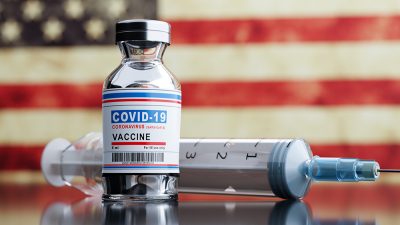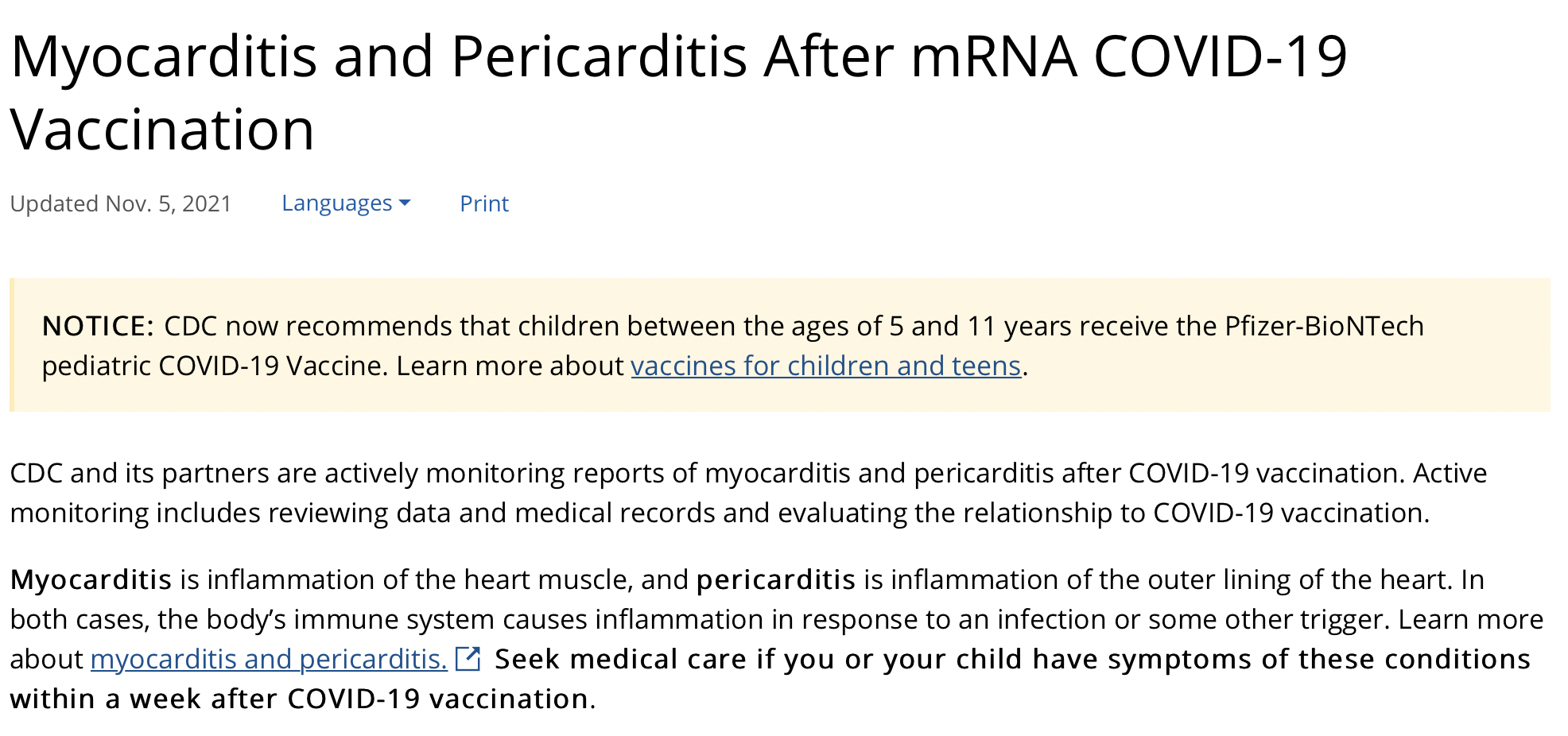Myocarditis and Pericarditis after mRNA COVID-19 Vaccination. CDC Report

All Global Research articles can be read in 51 languages by activating the “Translate Website” drop down menu on the top banner of our home page (Desktop version).
To receive Global Research’s Daily Newsletter (selected articles), click here.
Visit and follow us on Instagram at @crg_globalresearch.
***
Global Research Editor’s Note
It comes from the “Horse’s Mouth”.
The CDC tacitly acknowledges the devastating health impacts of the Covid mRNA vaccine.
The following text by the CDC is an official release on the incidence of myocarditis and pericarditis.
While the report does not question the legitimacy of the experimental mRNA vaccine, it nonetheless provides details which acknowledge the health risks.
Amply documented, children Worldwide are dying as a result of the vaccine. The evidence of mortality and morbidity resulting from vaccine inoculation both present (official data) and future (e.g. undetected microscopic blood clots) is overwhelming.
Numerous scientific studies published independently confirm the nature of the Covid-19 mRNA vaccine which is being imposed on all humanity.
What is presented by the CDC regarding myocarditis is but the tip of the iceberg.
It concludes with a contradictory statement calling for “everyone aged 12 years and older get vaccinated for COVID-19″ intimating that the “known risks” of Covid-19 far outweigh the “potential risks” of myocarditis.
The known risks of COVID-19 illness and its related, possibly severe complications, such as long-term health problems, hospitalization, and even death, far outweigh the potential risks of having a rare adverse reaction to vaccination, including the possible risk of myocarditis or pericarditis.
If you or your child has already gotten the first dose of the Pfizer-BioNTech or Moderna vaccine, it’s important to get the second dose unless a vaccination provider or your doctor tells you not to get it.
Michel C. Global Research, November 9, 2021
***
CDC Text
CDC and its partners are actively monitoring reports of myocarditis and pericarditis after COVID-19 vaccination. Active monitoring includes reviewing data and medical records and evaluating the relationship to COVID-19 vaccination.
Myocarditis is inflammation of the heart muscle, and pericarditis is inflammation of the outer lining of the heart. In both cases, the body’s immune system causes inflammation in response to an infection or some other trigger. Learn more about myocarditis and pericarditis.external icon Seek medical care if you or your child have symptoms of these conditions within a week after COVID-19 vaccination.
What You Need to Know
- Cases of myocarditis reported to the Vaccine Adverse Event Reporting System (VAERS) external icon have occurred:
- After mRNA COVID-19 vaccination (Pfizer-BioNTech or Moderna), especially in male adolescents and young adults,
- More often after the second dose
- Usually within several days after vaccination
- Most patients with myocarditis or pericarditis who received care responded well to medicine and rest and felt better quickly.
- Patients can usually return to their normal daily activities after their symptoms improve. Those who have been diagnosed with myocarditis should consult with their cardiologist (heart doctor) about return to exercise or sports. More information will be shared as it becomes available.
Both myocarditis and pericarditis have the following symptoms:
- Chest pain
- Shortness of breath
- Feelings of having a fast-beating, fluttering, or pounding heart
Seek medical care if you or your child have any of these symptoms, especially if it’s within a week after COVID-19 vaccination.
If you have any health problems after vaccination, report them to VAERSexternal icon.
Healthcare Providers: For additional recommendations and clinical guidance, visit Clinical Considerations: Myocarditis after mRNA COVID-19 Vaccines | CDC
Yes. CDC continues to recommend that everyone aged 12 years and older get vaccinated for COVID-19. The known risks of COVID-19 illness and its related, possibly severe complications, such as long-term health problems, hospitalization, and even death, far outweigh the potential risks of having a rare adverse reaction to vaccination, including the possible risk of myocarditis or pericarditis.
If you or your child has already gotten the first dose of the Pfizer-BioNTech or Moderna vaccine, it’s important to get the second dose unless a vaccination provider or your doctor tells you not to get it.
If you have concerns about COVID-19 vaccination, talk with your or your child’s doctor, nurse, or clinic.
*
Note to readers: Please click the share buttons above or below. Follow us on Instagram, @crg_globalresearch. Forward this article to your email lists. Crosspost on your blog site, internet forums. etc.
Featured image is from Vaccines.news


